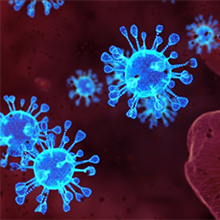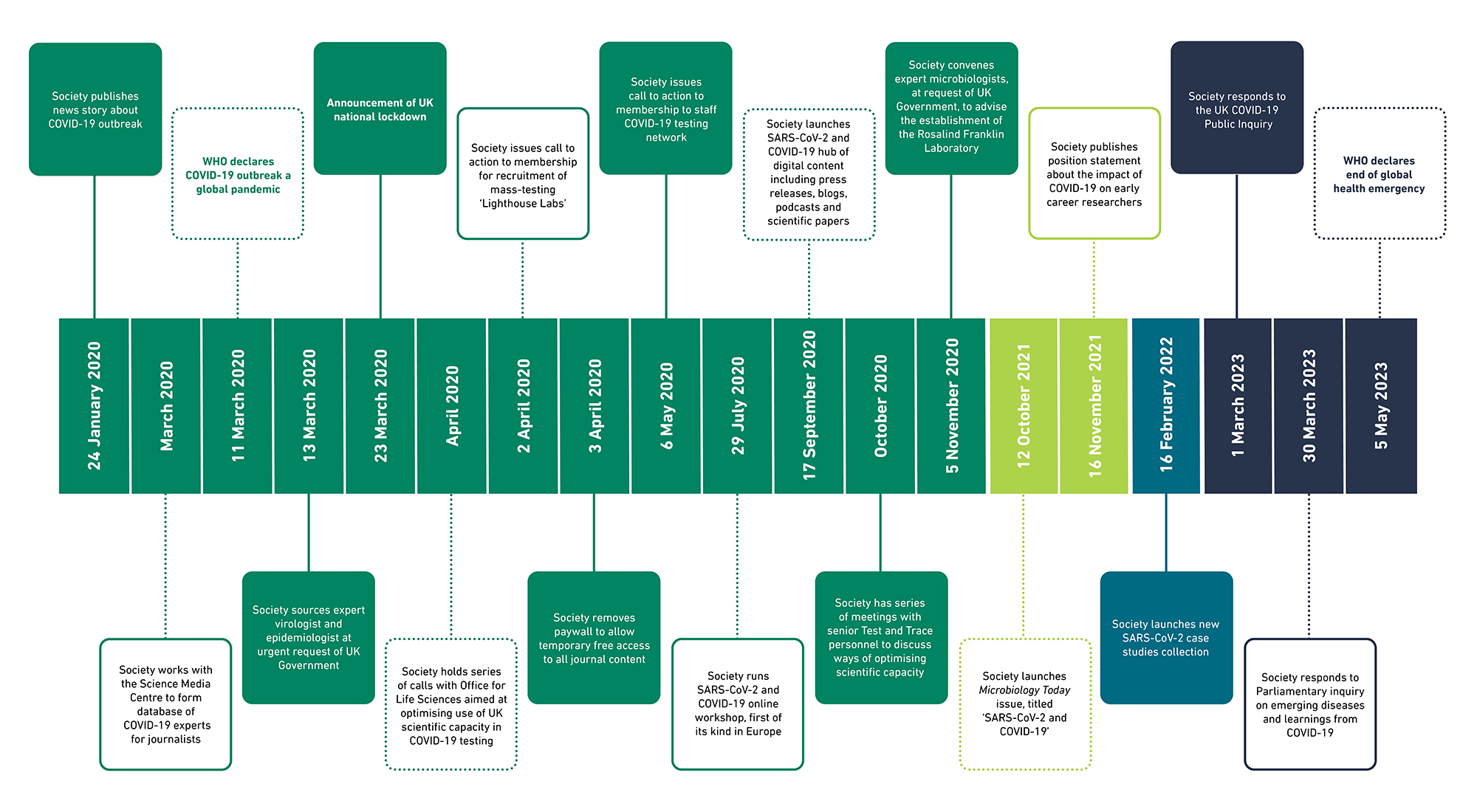Microbiology Society responds to House of Commons Science and Technology Committee inquiry on emerging diseases and learnings from COVID-19
29 June 2023

In March 2023, the Microbiology Society responded to the House of Commons Science and Technology Committee inquiry on emerging diseases and learnings from COVID-19.
Throughout the COVID-19 pandemic, the Microbiology Society, along with many other scientific societies, extended offers of support to the Government and endeavoured to act as a conduit between decision-makers and the scientific research base. The Society contributed to the national response in a variety of ways, including sourcing expert virologists and epidemiologists; issuing calls to its membership for recruitment of testing laboratories; and advising on how to optimise the use of the national scientific capacity.

However, on several occasions, the Microbiology Society and its members proposed further collaborations and were dismissed by the Government.
Now, the House of Commons Science and Technology Committee is conducting an inquiry into emerging diseases and lessons learned from COVID-19 to determine what went well and identify areas of weakness to ensure the UK is well placed to tackle future public health emergencies. We consulted with members that were directly involved in the national response to the pandemic and submitted a cohesive response that reflects the opinions and experiences of the Microbiology Society community.
Our response focuses on pandemic preparedness, testing capacity and approach, and emerging diseases. Our key findings are summarised below.
Pandemic preparedness
In our response we conclude that the UK remains poorly prepared for an emerging disease outbreak. This is in part due to chronic underfunding of public health services. The National Audit Office in its recent report concluded that the UK Health Security Agency (formerly Public Health England) has not been adequately supported to resolve its issues. There is also a lack of long-term, sustained funding programmes for scientific research on diseases with pandemic potential. Left unaddressed, these shortfalls in funding will impede the nation’s ability to respond to crises with urgency, so we advise that the Government prioritise strengthening investment in these areas. We also recommend that, alongside strengthening investment in public health and scientific research, the Government introduce formal, regular trial procedures to practice responding to public health crises and so that weaknesses in emergency planning and preparedness can be readily identified.
It is worth noting that our response concludes that the clinical and academic sectors were adequately prepared and stepped up to the challenge with notable speed and efficiency, for instance when setting up nationwide clinical trials and developing vaccines.
Testing capacity and approach
During key stages of the pandemic, it was difficult for experts to advise the Government on their testing strategy and offers of help were often declined. For instance, the Office for Life Sciences, Public Health England and NHS Test and Trace declined the Microbiology Society’s offers of support, and this was justified by the summation that it would not have been logistically possible to utilise such a vast and willing resource. However, we stress that if appropriate networks had been promoted, the core scientific base could have made a far greater contribution. We therefore recommend that the Government tap into this wealth of expertise, both in clinics and academia, to inform future decisions related to testing, diagnostics and surveillance.
Testing processes do already exist with reporting lines to the Government within virology, microbiology and veterinary laboratories. However, these structures were not exploited as well as they could have been in the early stages of the pandemic. We therefore recommend assembling regional teams of experts in diagnostics, testing and surveillance with established processes that can be motivated and quickly mobilised in crisis scenarios.
Emerging diseases
We ask the Government to continue to invest in prevention measures such as public health campaigns and surveillance projects, both within clinics and veterinary contexts, and to ensure laboratories are sufficiently trained and equipped to perform at scale.
Finally, we highlight key emerging zoonotic diseases and note that it is important to consider other global health threats including climate change and antimicrobial resistance, as the complex challenge of disease surveillance and containment will require a holistic approach that considers the spectrum of potential threats and how they interact with one another.
You can read our response in full here.
We wish to extend a strong message of support to the House of Commons Science and Technology Committee in its aim to take forward lessons learned from the COVID-19 pandemic and reiterate our position as a conduit between decision-makers and the vast wealth of expertise within the microbiology community.Image: iStock/Kamionsky.
